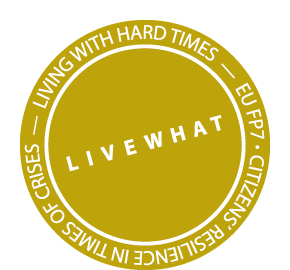Panepistimio Kritis
 Panepistimio Kritis in
Greece is a young public educational institution committed to
excellence in research and teaching. Established in 1973, the University
accepted its first students in 1977-78. It now has 17 Departments in 5
Schools (Philosophy, Education, Social Sciences, Sciences &
Engineering, and Medicine) as well as a number of affiliated
research-oriented institutions, including the Skinakas Observatory, the
Natural History Museum, and the University General Hospital. Currently,
over 14,000 undergraduates and 2500 postgraduate students are registered
here. They are educated by an outward looking academic faculty of
around 500 members, supported by over 150 adjunct lecturers, as well as
post-doctoral researchers, 110 laboratory support staff and instructors,
and 380 technical and administrative staff. The international
orientation of the University is reflected in its track record of
collaborations with many of the leading research and educational
institutions in Europe and worldwide as well as active promotion of
mobility and exchange programmes. Reflecting its research activity and
associated initiatives, the University of Crete is the first Greek
University to have signed the EU Charter and the Code for the
recruitment of researchers, and forms part of the Euraxess European
network for the mobility of researchers. For more information visit: http://www.en.uoc.gr/university/university-start.html
Panepistimio Kritis in
Greece is a young public educational institution committed to
excellence in research and teaching. Established in 1973, the University
accepted its first students in 1977-78. It now has 17 Departments in 5
Schools (Philosophy, Education, Social Sciences, Sciences &
Engineering, and Medicine) as well as a number of affiliated
research-oriented institutions, including the Skinakas Observatory, the
Natural History Museum, and the University General Hospital. Currently,
over 14,000 undergraduates and 2500 postgraduate students are registered
here. They are educated by an outward looking academic faculty of
around 500 members, supported by over 150 adjunct lecturers, as well as
post-doctoral researchers, 110 laboratory support staff and instructors,
and 380 technical and administrative staff. The international
orientation of the University is reflected in its track record of
collaborations with many of the leading research and educational
institutions in Europe and worldwide as well as active promotion of
mobility and exchange programmes. Reflecting its research activity and
associated initiatives, the University of Crete is the first Greek
University to have signed the EU Charter and the Code for the
recruitment of researchers, and forms part of the Euraxess European
network for the mobility of researchers. For more information visit: http://www.en.uoc.gr/university/university-start.html
In LIVEWHAT, research work is conducted by the Department of Sociology. The Department, operating since 1987, includes members with expertise in major fields of sociology, trained in reputable universities across Europe and North America, who have been participating in a wide variety of EC projects and activities including those under the 5th, 6th and 7th Framework. According to the external evaluation committee of experts in 2013, the Department has achieved national research excellence. For more information visit: http://www.soc.uoc.gr/sociology_en/
Members of the Greek team
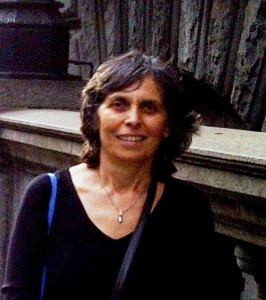 Dr Maria Kousis
is the principal investigator for the Greek team. She is Professor of
Sociology (Development and the Environment) at the University of Crete
and served as its Chair (2002-06), Director of the MSc & Ph.D.
program (2004-2008), while she is the vice-director of the MSc in
Bioethics since 2010. She was coordinator of the EC DGXII project
“Grassroots Environmental Action & Sustainable Development in the
Southern European Union” and partner in EC projects including TEA,
PAGANINI, and MEDVOICES. Publications include 10 edited
volumes/books/special issues, and 55 articles/book chapters; e.g.
Contested Mediterranean Spaces (co-editors T. Selwyn and D. Clark,
Berghahn Books, 2011), and Mediterranean Political Processes in
Historical-Comparative Perspective (co-editors C. Tilly, and R.
Franzosi, American Behavioral Scientist 2008). Her areas of
specialization focus on Social Change, Social Movements &
Contentious Politics, Environment, Bioethics & Society, and Southern
Europe.
Dr Maria Kousis
is the principal investigator for the Greek team. She is Professor of
Sociology (Development and the Environment) at the University of Crete
and served as its Chair (2002-06), Director of the MSc & Ph.D.
program (2004-2008), while she is the vice-director of the MSc in
Bioethics since 2010. She was coordinator of the EC DGXII project
“Grassroots Environmental Action & Sustainable Development in the
Southern European Union” and partner in EC projects including TEA,
PAGANINI, and MEDVOICES. Publications include 10 edited
volumes/books/special issues, and 55 articles/book chapters; e.g.
Contested Mediterranean Spaces (co-editors T. Selwyn and D. Clark,
Berghahn Books, 2011), and Mediterranean Political Processes in
Historical-Comparative Perspective (co-editors C. Tilly, and R.
Franzosi, American Behavioral Scientist 2008). Her areas of
specialization focus on Social Change, Social Movements &
Contentious Politics, Environment, Bioethics & Society, and Southern
Europe.
For more information visit: http://crete.academia.edu/MariaKousis http://www.soc.uoc.gr/sociology/?page_id=1190
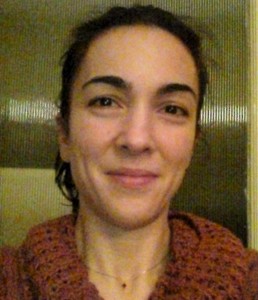 Dr Maria Paschou holds
a Doctorate in Political Science and Public Administration from the
University of Athens (MSc LSE, in Social Research Methods 2004, MSc LSE,
in Social and Public Communication 2005, BA in Social Anthropology and
Social Policy, Panteion University 2003), and she has research
experience in qualitative and quantitative methods. In 2007-2008 she
worked as visiting teaching associate and research assistant in the area
of Social Research Methods in the department of Political Science and
Public Administration at the University of Athens. She has been
scientific collaborator at the Institute for the Study of Migration and
Diaspora (EMMEDIA) of the University of Athens, as well as researcher at
the National Hellenic Research Foundation, the University of Vienna and
the Biomolecular Resources Research Infrastructure.
Dr Maria Paschou holds
a Doctorate in Political Science and Public Administration from the
University of Athens (MSc LSE, in Social Research Methods 2004, MSc LSE,
in Social and Public Communication 2005, BA in Social Anthropology and
Social Policy, Panteion University 2003), and she has research
experience in qualitative and quantitative methods. In 2007-2008 she
worked as visiting teaching associate and research assistant in the area
of Social Research Methods in the department of Political Science and
Public Administration at the University of Athens. She has been
scientific collaborator at the Institute for the Study of Migration and
Diaspora (EMMEDIA) of the University of Athens, as well as researcher at
the National Hellenic Research Foundation, the University of Vienna and
the Biomolecular Resources Research Infrastructure.
For more information visit: http://emmedia.pspa.uoa.gr/staff/paschou/paschou.html
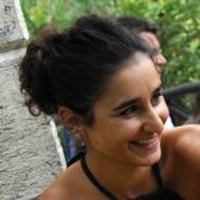 Dr Stefania Kalogeraki
is Lecturer in Quantitative Methods in Sociology (1998 BSc Statistics,
Athens University of Economic and Business; 2002 M.A. Sociology with
Research Training, 2007 Ph.D. Sociology, University of Reading). She has
participated in European (e.g. “Survey of Health, Ageing and Retirement
in Europe”, “Asthma and Atopy in Crete”) and Greek (e.g. “Alternative
Development of Local Communities in Crete”) research projects. Recent
publications focus on migrant-related attitudes among majority and
migrant groups, children’s well-being during recessionary times and the
escalation of anti-immigrant sentiments in Greek society under
austerity. Her main research interests include questionnaire design,
comparative social research, social demographic analysis and mixed
method designs. Her recent publications focus on methodological issues
(e.g. online mixed method designs) as well as on the escalation of
xenophobia in the Greek society. For more information visit: http://www.soc.uoc.gr/sociology/?page_id=1868 https://crete.academia.edu/StefaniaKalogeraki
Dr Stefania Kalogeraki
is Lecturer in Quantitative Methods in Sociology (1998 BSc Statistics,
Athens University of Economic and Business; 2002 M.A. Sociology with
Research Training, 2007 Ph.D. Sociology, University of Reading). She has
participated in European (e.g. “Survey of Health, Ageing and Retirement
in Europe”, “Asthma and Atopy in Crete”) and Greek (e.g. “Alternative
Development of Local Communities in Crete”) research projects. Recent
publications focus on migrant-related attitudes among majority and
migrant groups, children’s well-being during recessionary times and the
escalation of anti-immigrant sentiments in Greek society under
austerity. Her main research interests include questionnaire design,
comparative social research, social demographic analysis and mixed
method designs. Her recent publications focus on methodological issues
(e.g. online mixed method designs) as well as on the escalation of
xenophobia in the Greek society. For more information visit: http://www.soc.uoc.gr/sociology/?page_id=1868 https://crete.academia.edu/StefaniaKalogeraki
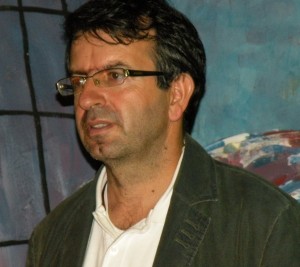 Dr Yiannis Zaimakis
is Associate Professor of Sociology of Culture and Locality at the
Department of Sociology (University of Crete) and visiting professor at
the Open University of Greece. He is member of the Board of Directors at
the Centre for Research and Studies of the University of Crete and he
has carried our research on various projects concerning community work
and development, football and fandom cultures, popular music and
rebetika songs, as well as urban space and graffiti. Recent publications
include, Football and Fan Communities: Contestations and politics of
identity, (co-ed. N. Kotaridis, Plethron, 2013), and Community Work and
Local societies: development, collective action, multiculturalism
(Plethron, 2008). His most current work centers on the impacts of the
crisis through the cultural lense of graffiti making in Greece.
Dr Yiannis Zaimakis
is Associate Professor of Sociology of Culture and Locality at the
Department of Sociology (University of Crete) and visiting professor at
the Open University of Greece. He is member of the Board of Directors at
the Centre for Research and Studies of the University of Crete and he
has carried our research on various projects concerning community work
and development, football and fandom cultures, popular music and
rebetika songs, as well as urban space and graffiti. Recent publications
include, Football and Fan Communities: Contestations and politics of
identity, (co-ed. N. Kotaridis, Plethron, 2013), and Community Work and
Local societies: development, collective action, multiculturalism
(Plethron, 2008). His most current work centers on the impacts of the
crisis through the cultural lense of graffiti making in Greece.
For more information visit: http://crete.academia.edu/YiannisZaimakis
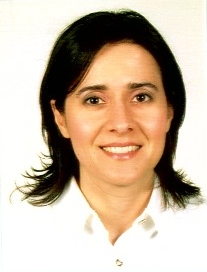 Dr Eugenia Petropoulou
is Lecturer in Rural Sociology at the Department of Sociology,
University of Crete, Greece. She acquired her Ph.D. in Sociology from
the University of Manchester, UK. Her recent research and writing have
focused on Rural Transformations, Agricultural Policies and Sustainable
Livelihoods in Greece. Her research experience includes work in
different EU-funded projects. She is currently working on a research
project [WATBIO] on farmers’ intentions towards producing bio-fuel crops
in Greece, Germany and the UK. Her recent publications include
“Conditions of permanent crisis in an agricultural community of Southern
Crete” (2014, in S. Zambarloukou and M. Kousis, eds, Social Aspects of
Crisis in Greece, Athens: Pedio).
Dr Eugenia Petropoulou
is Lecturer in Rural Sociology at the Department of Sociology,
University of Crete, Greece. She acquired her Ph.D. in Sociology from
the University of Manchester, UK. Her recent research and writing have
focused on Rural Transformations, Agricultural Policies and Sustainable
Livelihoods in Greece. Her research experience includes work in
different EU-funded projects. She is currently working on a research
project [WATBIO] on farmers’ intentions towards producing bio-fuel crops
in Greece, Germany and the UK. Her recent publications include
“Conditions of permanent crisis in an agricultural community of Southern
Crete” (2014, in S. Zambarloukou and M. Kousis, eds, Social Aspects of
Crisis in Greece, Athens: Pedio).
For more information visit: http://www.soc.uoc.gr/sociology/?page_id=414
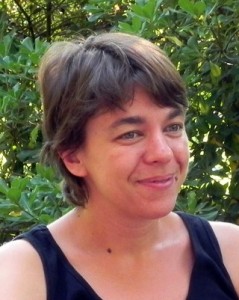 Marina Papadakis
(MSc in Statistics, Department of Statistics, Auckland University, New
Zealand, 1996) is technician-statistician at the University of Crete
with research and teaching experience on quantitative methods at the
Department of Sociology. She has published (with S. Kalogeraki) “The
impact of mobile use on teenagers’ socialization,” International Journal
of Interdisciplinary Social Sciences, 5 (4):121-134. Her current
research includes topics related to solidarity actions towards migrants
at the local level, while recent research has focused on solidarity
actions and networks in Chania, Crete.
Marina Papadakis
(MSc in Statistics, Department of Statistics, Auckland University, New
Zealand, 1996) is technician-statistician at the University of Crete
with research and teaching experience on quantitative methods at the
Department of Sociology. She has published (with S. Kalogeraki) “The
impact of mobile use on teenagers’ socialization,” International Journal
of Interdisciplinary Social Sciences, 5 (4):121-134. Her current
research includes topics related to solidarity actions towards migrants
at the local level, while recent research has focused on solidarity
actions and networks in Chania, Crete.
For more information visit: http://www.soc.uoc.gr/sociology/?page_id=2533
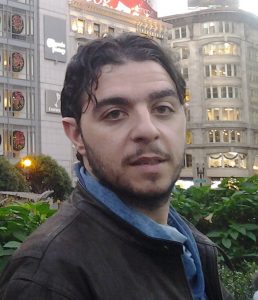 Angelos Loukakis
is a member of the Greek team and a Researcher at the University of
Crete Research Fund. His research interests focus on Mobilisation,
Collective Action, Protest, Social and Environmental Movements, etc. He
is a Master’s (MSc) (2012) and a Bachelor’s degree (2007) holder in
Sociology at the University of Crete. His master thesis was on local
environmental protest and policies on waste disposal facilities in
Greece, the case of Crete, 1998-2010. Currently he participates in the
LIVEWHAT project (http://www.livewhat.unige.ch) and the TransSOL project (http://transsol.eu/). He is a founding member of the Sociological Association of University of Crete Alumni.
Angelos Loukakis
is a member of the Greek team and a Researcher at the University of
Crete Research Fund. His research interests focus on Mobilisation,
Collective Action, Protest, Social and Environmental Movements, etc. He
is a Master’s (MSc) (2012) and a Bachelor’s degree (2007) holder in
Sociology at the University of Crete. His master thesis was on local
environmental protest and policies on waste disposal facilities in
Greece, the case of Crete, 1998-2010. Currently he participates in the
LIVEWHAT project (http://www.livewhat.unige.ch) and the TransSOL project (http://transsol.eu/). He is a founding member of the Sociological Association of University of Crete Alumni.
